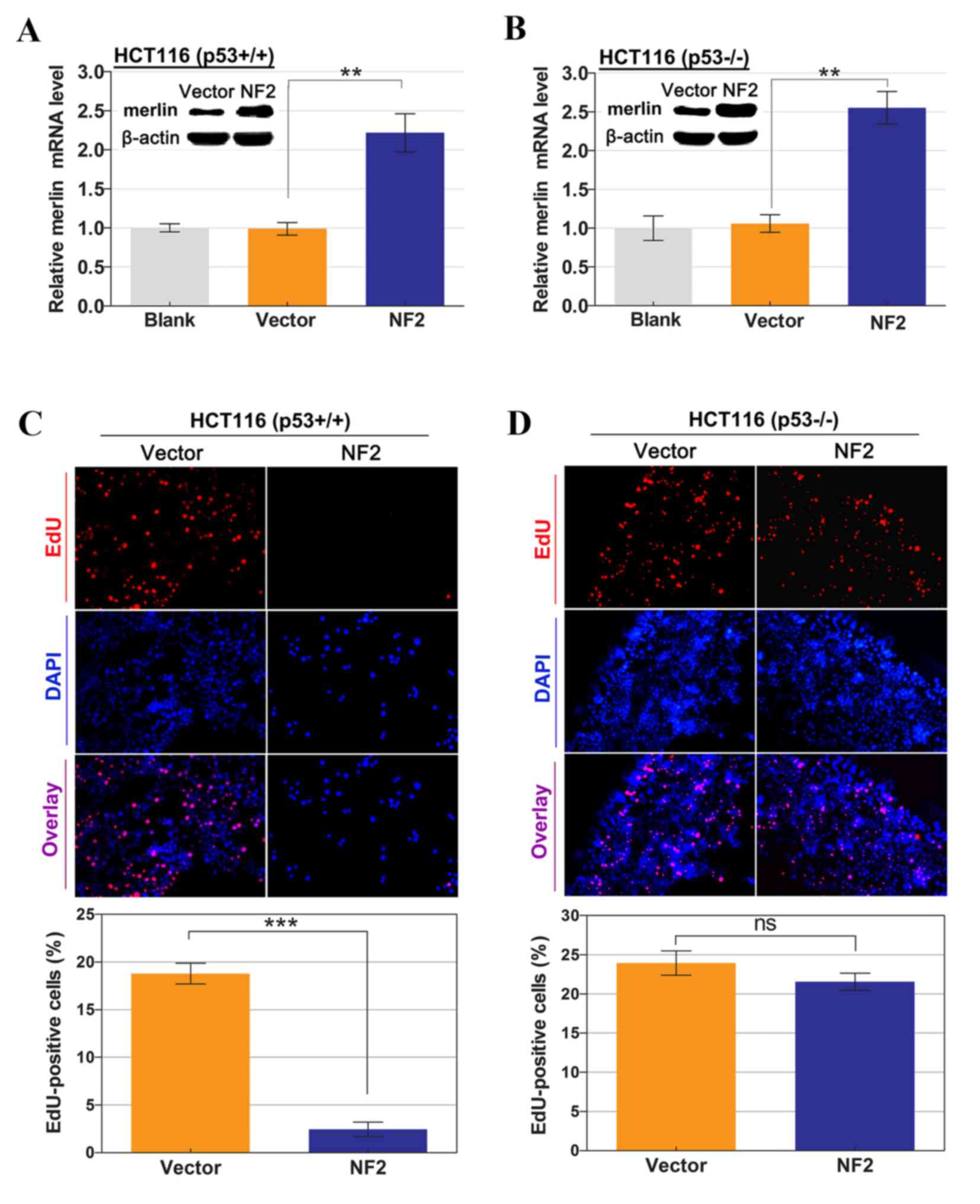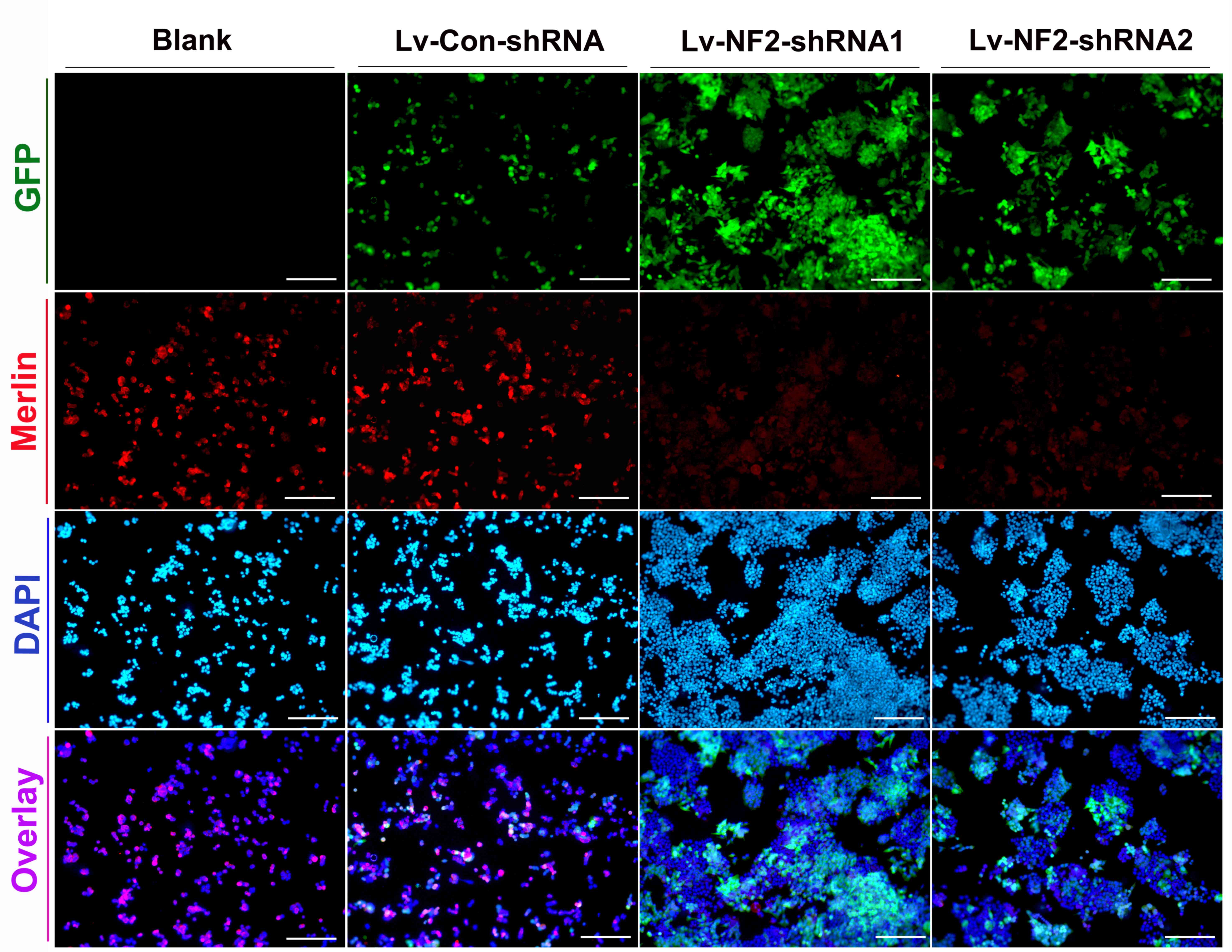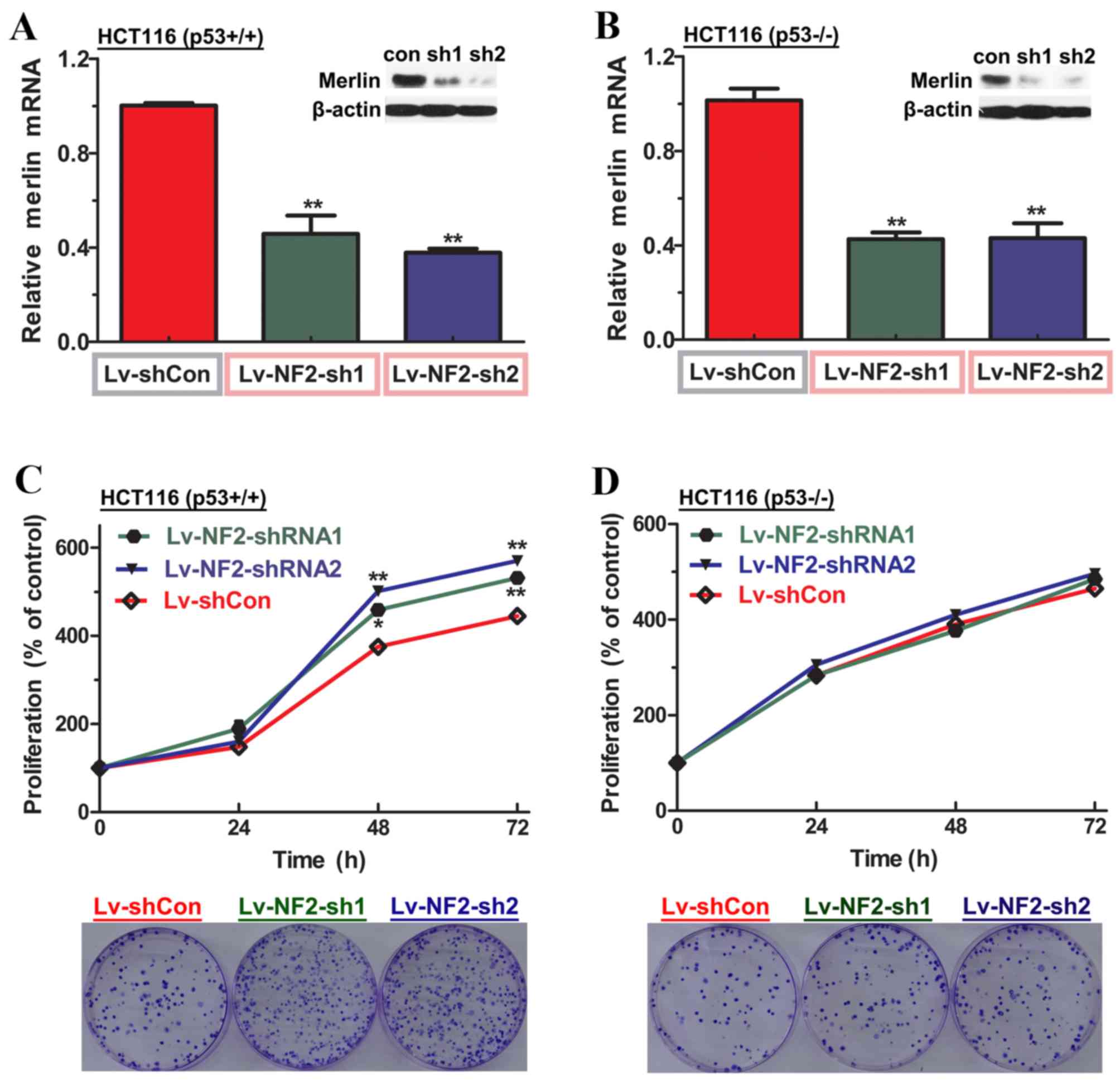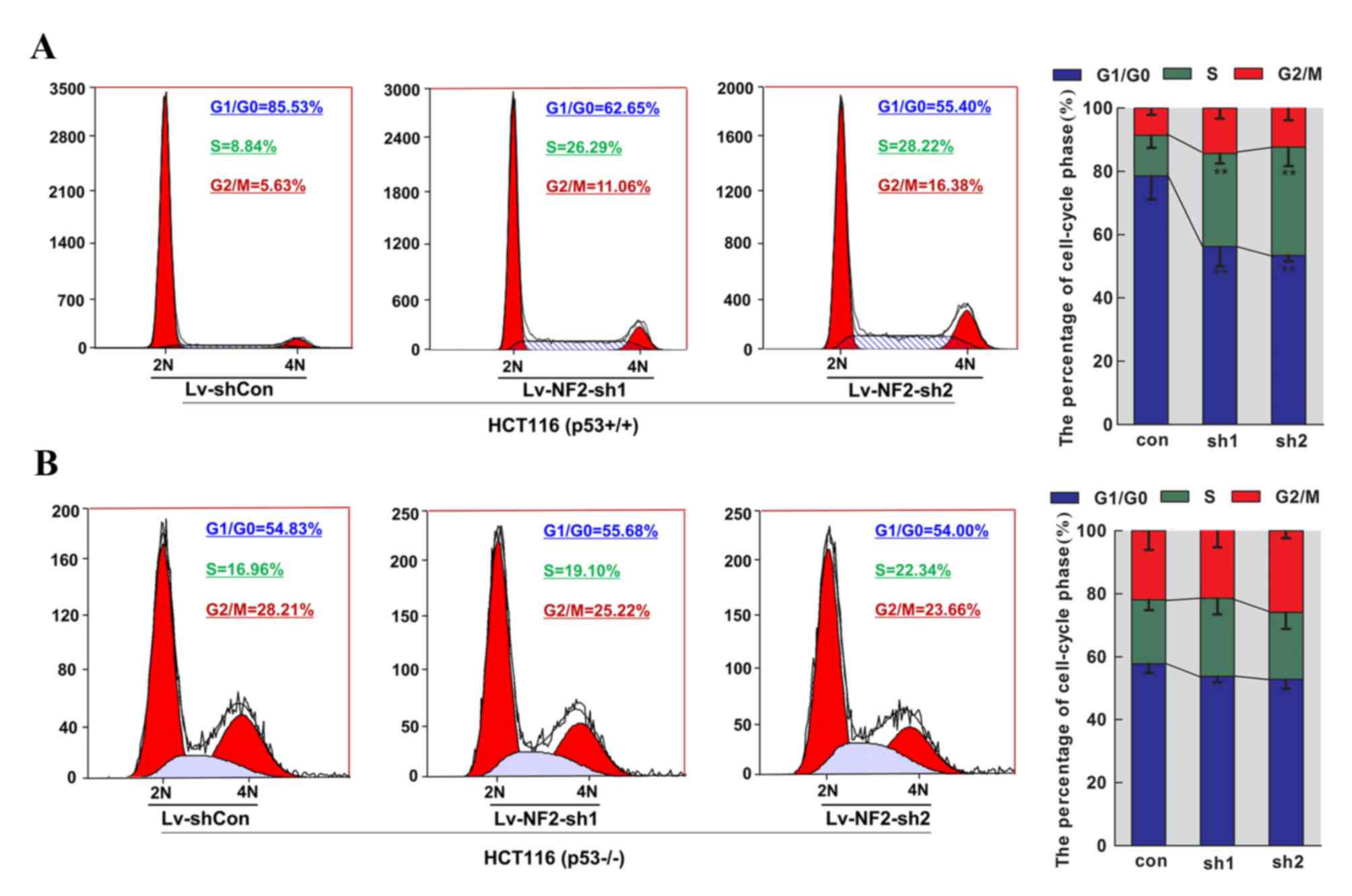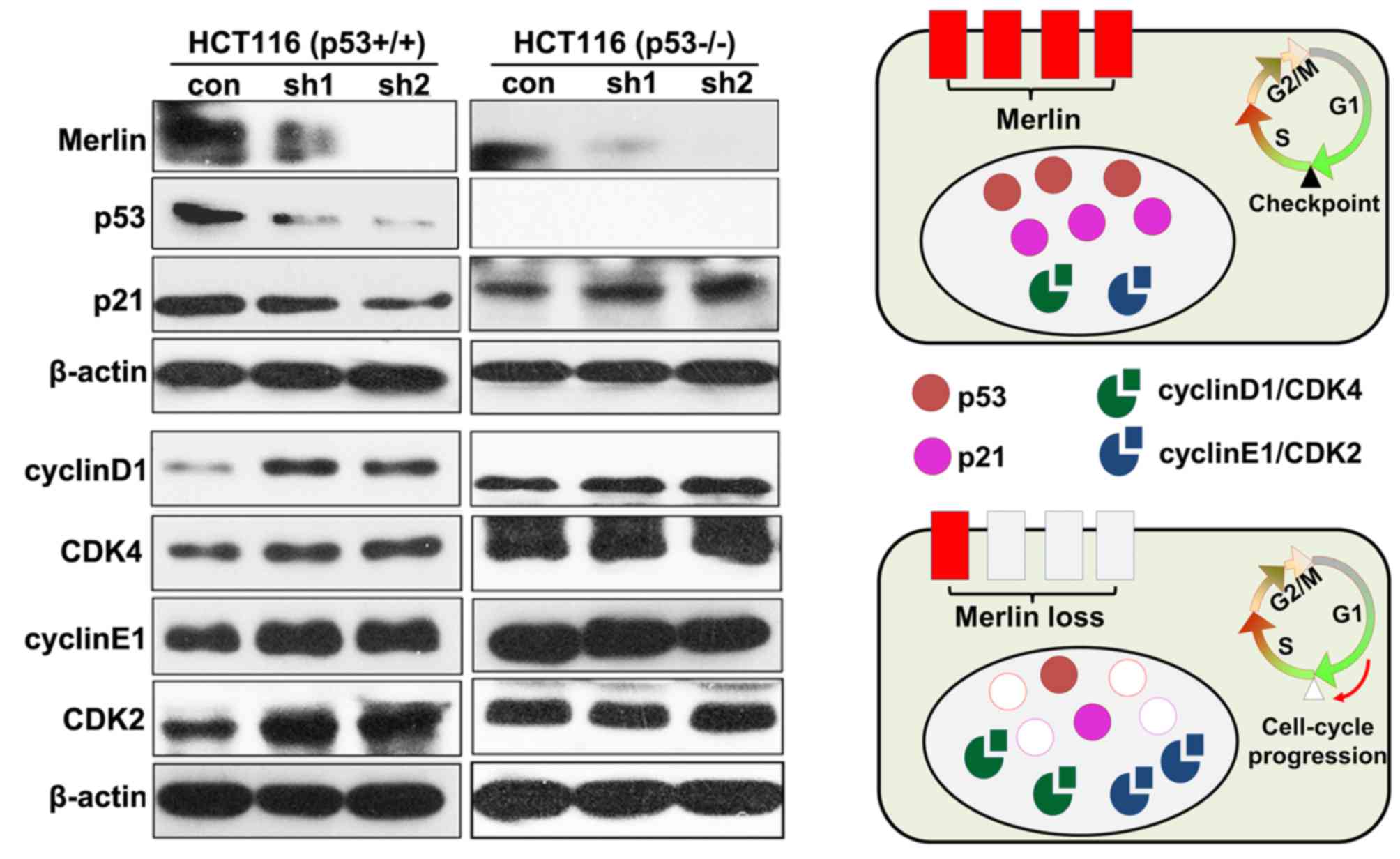|
1
|
Wang Z, Lu Y, Tang J, Wang H and Wu H: The
phosphorylation status of merlin in sporadic vestibular
Schwannomas. Mol Cell Biochem. 324:201–206. 2009. View Article : Google Scholar : PubMed/NCBI
|
|
2
|
Zhang Z, Wang Z, Sun L, Li X, Huang Q,
Yang T and Wu H: Mutation spectrum and differential gene expression
in cystic and solid vestibular schwannoma. Genet Med. 16:264–270.
2014. View Article : Google Scholar : PubMed/NCBI
|
|
3
|
Chen H, Zhang X, Zhang Z, Yang T, Wang Z
and Wu H: The role of NF2 gene mutations and pathogenesis-related
proteins in sporadic vestibular schwannomas in young individuals.
Mol Cell Biochem. 392:145–152. 2014. View Article : Google Scholar : PubMed/NCBI
|
|
4
|
Lau YK, Murray LB, Houshmandi SS, Xu Y,
Gutmann DH and Yu Q: Merlin is a potent inhibitor of glioma growth.
Cancer Res. 68:5733–5742. 2008. View Article : Google Scholar : PubMed/NCBI
|
|
5
|
Sheikh HA, Tometsko M, Niehouse L, Aldeeb
D, Swalsky P, Finkelstein S, Barnes EL and Hunt JL: Molecular
genotyping of medullary thyroid carcinoma can predict tumor
recurrence. Am J Surg Pathol. 28:101–106. 2004. View Article : Google Scholar : PubMed/NCBI
|
|
6
|
Sekido Y: Genomic abnormalities and signal
transduction dysregulation in malignant mesothelioma cells. Cancer
Science. 101:1–6. 2010. View Article : Google Scholar : PubMed/NCBI
|
|
7
|
Cačev T, Aralica G, Lončar B and
Kapitanović S: Loss of NF2/Merlin expression in advanced sporadic
colorectal cancer. Cell Oncol (Dordr). 37:69–77. 2014. View Article : Google Scholar : PubMed/NCBI
|
|
8
|
Shimizu K, Nagamachi Y, Tani M, Kimura K,
Shiroishi T, Wakana S and Yokota J: Molecular cloning of a novel
NF2/ERM/4.1 superfamily gene, ehm2, that is expressed in
high-metastatic K1735 murine melanoma cells. Genomics. 65:113–120.
2000. View Article : Google Scholar : PubMed/NCBI
|
|
9
|
Sainz J, Huynh DP, Figueroa K, Ragge NK,
Baser ME and Pulst SM: Mutations of the neurofibromatosis type 2
gene and lack of the gene product in vestibular schwannomas. Hum
Mol Genet. 3:885–891. 1994. View Article : Google Scholar : PubMed/NCBI
|
|
10
|
Stamenkovic I and Yu Q: Merlin, a ‘magic’
linker between the extracellular cues and intracelular signaling
pathways that regulate cell motility, proliferation, and survival.
Curr Protein Pept Sci. 11:471–484. 2010. View Article : Google Scholar : PubMed/NCBI
|
|
11
|
Schroeder RD, Angelo LS and Kurzrock R:
NF2/merlin in hereditary neurofibromatosis 2 versus cancer:
Biologic mechanisms and clinical associations. Oncotarget. 5:67–77.
2014.PubMed/NCBI
|
|
12
|
Gutmann DH, Giordano MJ, Fishback AS and
Guha A: Loss of merlin expression in sporadic meningiomas,
ependymomas and schwannomas. Neurology. 49:267–270. 1997.
View Article : Google Scholar : PubMed/NCBI
|
|
13
|
Yang C, Asthagiri AR, Iyer RR, Lu J, Xu
DS, Ksendzovsky A, Brady RO, Zhuang Z and Lonser RR: Missense
mutations in the NF2 gene result in the quantitative loss of merlin
protein and minimally affect protein intrinsic function. Proc Natl
Acad Sci USA. 108:pp. 4980–4985. 2011; View Article : Google Scholar : PubMed/NCBI
|
|
14
|
Ammoun S, Flaiz C, Ristic N, Schuldt J and
Hanemann CO: Dissecting and targeting the growth factor-dependent
and growth factor-independent extracellular signal-regulated kinase
pathway in human schwannoma. Cancer Res. 68:5236–5245. 2008.
View Article : Google Scholar : PubMed/NCBI
|
|
15
|
Curto M, Cole BK, Lallemand D, Liu CH and
McClatchey AI: Contact-dependent inhibition of EGFR signaling by
Nf2/Merlin. J Cell Biol. 177:893–903. 2007. View Article : Google Scholar : PubMed/NCBI
|
|
16
|
Flaiz C, Ammoun S, Biebl A and Hanemann
CO: Altered adhesive structures and their relation to RhoGTPase
activation in merlin deficient Schwannoma. Brain Pathol. 19:27–38.
2009. View Article : Google Scholar : PubMed/NCBI
|
|
17
|
Li W, You L, Cooper J, Schiavon G,
Pepe-Caprio A, Zhou L, Ishii R, Giovannini M, Hanemann CO, Long SB,
et al: Merlin/NF2 suppresses tumorigenesis by inhibiting the E3
ubiquitin ligase CRL4(DCAF1) in the nucleus. Cell. 140:477–490.
2010. View Article : Google Scholar : PubMed/NCBI
|
|
18
|
Robanus-Maandag E, Giovannini M, van der
Valk M, Niwa-Kawakita M, Abramowski V, Antonescu C, Thomas G and
Berns A: Synergy of Nf2 and p53 mutations in development of
malignant tumours of neural crest origin. Oncogene. 23:6541–6547.
2004. View Article : Google Scholar : PubMed/NCBI
|
|
19
|
Chang Z, Guo CL, Ahronowitz I,
Stemmer-Rachamimov AO, MacCollin M and Nunes FP: A role for the p53
pathway in the pathology of meningiomas with NF2 loss. J
Neurooncol. 91:265–270. 2009. View Article : Google Scholar : PubMed/NCBI
|
|
20
|
Kim H, Kwak NJ, Lee JY, Choi BH, Lim Y, Ko
YJ, Kim YH, Huh PW, Lee KH, Rha HK and Wang YP: Merlin neutralizes
the inhibitory effect of Mdm2 on p53. J Biol Chem. 279:7812–7818.
2004. View Article : Google Scholar : PubMed/NCBI
|
|
21
|
Wu H, Chen Y, Wang ZY, Li W, Li JQ, Zhang
L and Lu YJ: Involvement of p21 (waf1) in merlin deficient sporadic
vestibular schwannomas. Neuroscience. 170:149–155. 2010. View Article : Google Scholar : PubMed/NCBI
|
|
22
|
Livak KJ and Schmittgen TD: Analysis of
relative gene expression data using real-time quantitative PCR and
the 2(−Delta Delta C(T)) Method. Methods. 25:402–408. 2001.
View Article : Google Scholar : PubMed/NCBI
|
|
23
|
Poulikakos PI, Xiao GH, Gallagher R,
Jablonski S, Jhanwar SC and Testa JR: Re-expression of the tumor
suppressor NF2/merlin inhibits invasiveness in mesothelioma cells
and negatively regulates FAK. Oncogene. 25:5960–5968. 2006.
View Article : Google Scholar : PubMed/NCBI
|
|
24
|
Schulze KM, Hanemann CO, Müller HW and
Hanenberg H: Transduction of wild-type merlin into human schwannoma
cells decreases schwannoma cell growth and induces apoptosis. Hum
Mol Genet. 11:69–76. 2002. View Article : Google Scholar : PubMed/NCBI
|
|
25
|
Lü J, Zou J, Wu H and Cai L: Compensative
shuttling of merlin to phosphorylation on serine 518 in vestibular
schwannoma. Laryngoscope. 118:169–174. 2008. View Article : Google Scholar : PubMed/NCBI
|
|
26
|
Muranen T, Grönholm M, Renkema GH and
Carpén O: Cell cycle-dependent nucleocytoplasmic shuttling of the
neurofibromatosis 2 tumour suppressor merlin. Oncogene.
24:1150–1158. 2005. View Article : Google Scholar : PubMed/NCBI
|
|
27
|
Arellano M and Moreno S: Regulation of
CDK/cyclin complexes during the cell cycle. Int J Biochem Cell
Biol. 29:559–573. 1997. View Article : Google Scholar : PubMed/NCBI
|
|
28
|
Scoles DR: The merlin interacting proteins
reveal multiple targets for NF2 therapy. Biochim Biophys Acta.
1785:32–54. 2008.PubMed/NCBI
|
|
29
|
Lallemand D, Manent J, Couvelard A,
Watilliaux A, Siena M, Chareyre F, Lampin A, Niwa-Kawakita M,
Kalamarides M and Giovannini M: Merlin regulates transmembrane
receptor accumulation and signaling at the plasma membrane in
primary mouse Schwann cells and in human schwannomas. Oncogene.
28:854–865. 2009. View Article : Google Scholar : PubMed/NCBI
|
|
30
|
Planque N: Nuclear trafficking of secreted
factors and cell-surface receptors: New pathways to regulate cell
proliferation and differentiation and involvement in cancers. Cell
Commun Signal. 4:72006. View Article : Google Scholar : PubMed/NCBI
|
|
31
|
Ahmad Z, Brown CM, Patel AK, Ryan AF,
Ongkeko R and Doherty JK: Merlin knockdown in human Schwann cells:
Clues to vestibular schwannoma tumorigenesis. Otol Neurotol.
31:460–466. 2010. View Article : Google Scholar : PubMed/NCBI
|
|
32
|
Monoh K, Ishikawa K, Yasui N, Mineura K,
Andoh H and Togawa K: p53 tumor suppressor gene in acoustic
neuromas. Acta Otolaryngol Suppl. 537:11–15. 1998.PubMed/NCBI
|















